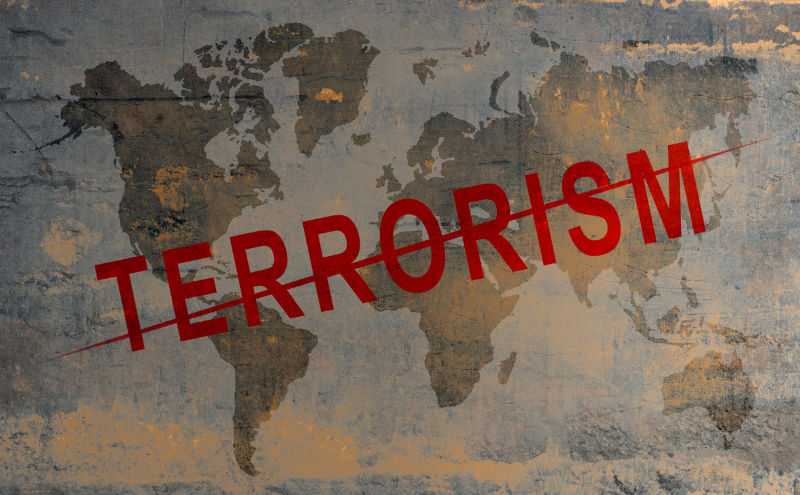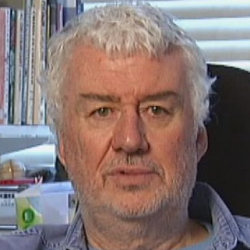Speaking terrorism Part 1: The things we forget
September 5, 2025
Recent events in Australia and elsewhere have returned the word terrorism to prominence in the discourse of political violence.
This will not be to the benefit of understanding the events to which it is applied. The problem, basically, is that for so long, too much of the study of terrorism has inhabited the intellectual slums of both opportunistic politics and commentary that is conceptually adrift, historically ignorant, and intellectually compromised. This situation — known in Northern Ireland as “the politics of the last atrocity” — has all but overpowered or marginalised the serious, thoughtful and insightful accounts of terrorism and has created a serious analytical lacuna: terrorism, for the most part is a fugitive from definition and meaning.
This is not to deny that definitions proliferate and are proffered in good faith. But they tend to be undone the instant they are “operationalised”. It is a long-recognised phenomenon and on clear display in the reports of the leading institutions for analysing terrorism and in the works of those widely acknowledged as experts in the field well before the events of 9/11.
Among the most diligent, heroic attempts to define terrorism were made but these were generally followed by disclaimers that, in all honesty, a universally acceptable definition of it had proven impossible. And this despite the best of intentions to ensure that the subject was defined by the nature of the act and not by the identity of the perpetrators or the nature of the cause.
9/11 took this default to another level. The outpouring of commentary and analysis which the events understandably attracted was also an inversion of Matthew 22:14. Many were called and, sad to say, many were also chosen. Understanding the thing called terrorism was retarded rather than advanced.
For all of their shortcomings, the best pre-9/11 attempts provided some grounds for proceeding, but with an abundance of caution. An attempt by the RAND Corporation in the mid-1980s will suffice: “Terrorism is violence, or the threat of violence, calculated to create an atmosphere of fear and alarm. All terrorist acts are crimes.”
Post 9/11, we are indebted to the philosopher, C.A.J. Coady, for this thoughtful contribution: “A terrorist act is a political act ordinarily committed or inspired by an organised group, in which violence is intentionally directed at non-combatants (or innocents in a suitable sense) or their significant property, in order to cause them serious harm.”
On first acquaintance these would seem to cover, inter alia: the recent arson attack on a synagogue in Melbourne and against a Jewish-owned restaurant in the city on the same night; Hamas’s 7 October 2023 attacks on Israel; the bombing of Galeries Lafayette in Paris in 1985; the sinking of Rainbow Warrior in Auckland, Aotearoa in 1985; the Bali bombings of 2002, and the ongoing campaign of attacks by Jewish settlers on Palestinians living on the West Bank.
The problem here — and this is not to dismiss Professor Coady’s record of outstanding scholarship — is that, if the creation of terror and harm to a non-combatant group are necessary conditions, then the entire spectrum of political violence — from riots, to the nuclear balance of terror, via drone assassinations, civil war, and area bombing — are all forms of terrorism.
Ultimately, no matter the definition, interrogating it leads to the uneasy conclusion that terrorism is a word without sufficient meaning or definition; in effect, it is a flag signifying terra nullius. Which means, of course, it is available for exploitation.
Why, then, proceed at all if the term is so tainted? The first answer lies in the fact that Quixotic jousting with error must have its limits when there is a definite need to compromise and to address the uses and misuses of a word — terrorism — in the name of an improved politics.
In any case, though rigorous analysis and intellectual hygiene would counsel that the word enter the inventory of hazards to navigation, be withdrawn, and compulsorily retired, that is a task for history and beyond this post.
The second is found in the need to resist the inevitable exploitation of the term.
In the process it might become apparent that, rather than use the word “terrorist”, others, depending on the act to hand, would be more accurate and these can be found in the related literature.
To put it another way, and by way of a single example, why use “terrorist” when partisan or guerrilla would improve understanding?
Again, the answer is quite straightforward. “Terrorism” has considerable utility as a weapon, particularly for those who are attracted to abbreviated understandings of terrorism itself – those who ignore, or treat perfunctorily, the history and various contexts of campaigns of what is referred to as terrorism.
This is to say that terrorism is usefully understood metaphorically. In the first instance, as the EPO of political-strategic discourse: it has performance-enhancing qualities.
Second, it is the Swiss Army Knife of the same discourse; within a small package it performs many functions.
And finally, in the hands of those whose talent it is to control narratives, its line of pedigree is to Lewis Carroll’s Humpty Dumpty who proclaims that, “When I use a word, it means just what I choose it to mean – neither more nor less”.
In societies that have lived in relative domestic peace, and which have not prepared for studying and understanding the spectrum of political violence, the advent of various acts consigned to the category of terrorism are immediately interpreted apocalyptically – as a form of barbarism which threatens civilisation.
This is an act of cognitive dissonance by mainstream academics, analysts, and commentators alike. The very societies which feel threatened by terroristic violence fail to recognise that they are embedded in the product of such violence.
None seem able to recall that the nation state — indeed, the state in which they enjoy domestic peace — is almost certainly the beneficiary of foundational violence in general and terrorism (most probably by another name) in particular.
It is seldom otherwise if due attention is paid to the system of states and, thus, certain relevant, unpleasant, and undeniable facts about origins which include: [1] that civilisation itself is founded on violence; [2] that political collectivities which emphasis self-interest and collective egoism are inherently brutal; [3] that, in Karl W. Deutsch’s summation, “a nation is a group of people united by a common mistake regarding its origins and a collective hostility towards its neighbours”, and [4] that nationalism, ultimately, is a “community of blood".
This awareness, however, is currently beyond popular sensibility. To the extent that nations reflect on the terrorist violence directed at them, they begin almost inevitably in the manner of Joseph Conrad’s reaction to the anarchist bomb attack on the Royal Observatory in Greenwich Park, London, in 1894, and recorded in The Secret Agent:
“[A] blood-stained inanity of so fatuous a kind that it is impossible to fathom its origin by any reasonable or even unreasonable process of thought. For perverse unreason has its own logical processes. But that outrage could not be laid hold of mentally in any sort of way, so that one remained faced by the fact of a man blown to pieces for nothing even most remotely resembling an idea, anarchist, or other.”
In time, however, and usually the transit is short, “civilised society” asserts its contrary nature as its leaders lend themselves to the cult-worship of counter-terrorism savants, themselves steeped in the cultivated innocence of what they should be most knowledgeable.
In time, too, the enigma that is terrorism — an abstract noun — holds sway over the collective mind and paralyses critical thought. The terrorist is always the Other, a persona or collectivity whose grievances are unappeasable and the definition of whom is usually heavily freighted racially, ethnically, religiously.
Once invoked, its influential and perilous attraction is everywhere evident. Regardless of whether it does so in reality, it is held to be a crime of the highest status because it threatens not only the state, but also civilisation. Accordingly, it demands that a state of exception be declared requiring the dissolution or suspension of legal and political restraints and the enhancement of state powers.
In full bloom this creates a Manichaean division of the world into god and evil, friends and enemies.
As regards the latter of these dualisms it responds violently and blindly, while all the time proclaiming the virtue of its cause – the bellum justum. But this is an amalgam of little more than farce and savagery, revenge, and indiscriminate repression.
This is not to excuse the crimes committed by those who, in an undiscriminating application of even the best, but inadequate definitions of terrorism, are terrorists, and should face justice, but it is a plea to search for better ways to understand political violence in all of its manifestations beyond the current habits of abuse and misuse of a word.
To fail, takes us forward into another Global War on Terror, but also back, and again, to Conrad and his recounting of an attack by a French man-of-war in Heart of Darkness:
“In the empty immensity of earth, sky, and water, there she was, incomprehensible, firing into a continent. Pop, would go one of the six-inch guns; a small flame would dart and vanish, a little white smoke would disappear, a tiny projectile would give a feeble screech – and nothing happened. Nothing could happen. There was a touch of insanity in the proceeding, a sense of lugubrious drollery in the sight…”
The views expressed in this article may or may not reflect those of Pearls and Irritations.


